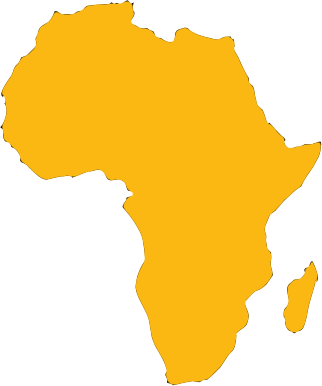The Monetary Policy Committee (MPC), Schools Challenge is to promote interest and deepen understanding of the South African Reserve Bank’s role in the economy
By Angie Motshekga- Minister of Basic Education
It is a singular honour and privilege for me to be here with all of you as we gather to announce the winners of the Monetary Policy Committee (MPC) Schools Challenge for the 2022 academic year.
At the heart of the Monetary Policy Committee (MPC), Schools Challenge is to promote interest and deepen understanding of the South African Reserve Bank’s role in the economy, specifically its primary mandate among high school learners.
The MPC Schools Challenge allows learners to simulate a scenario by assuming specific roles.
In this challenge, learners simulated the Reserve Bank’s process of making an interest rate decision by the MPC.
This Reserve Bank Schools Challenge is critical because it helps learners stimulate their imagination, thus inculcating a culture of rigorous intellectual inquiry.
For the newbies in this yearly competition, the MPC School Challenge is a national competition that targets Grade 12 Economics learners.
It exposes them to how the Monetary Policy Committee (MPC) of the South African Reserve Bank (SARB) sets the repo rate.
It is open to Grade 12 schools that offer Economics with Mathematics only.
It allows learners to prepare and present an essay in the format of the SARB MPC Policy statement (as done by the Governor of the SARB and the MPC team)
The learners are provided with data to analyse but can also use additional resources like newspapers, publications, radio and television.
The thrust of the competition is also to promote teamwork; hence all learners are divided into teams.
Each team consists of four learners from one school.
This competition is crucial for us as Basic Education Department. It offers our learners an opportunity to deepen their understanding of monetary policy and the role played by the SARB in the economy.
It improves economic analysis and bridges the gap between theory and practice.
Importantly it demystifies while promoting economics as a career.
In 2022, 224 schools attended the briefing meeting(s) where the SARB explained the rules of the competition.
Of those, 102 schools submitted their essays that met the criteria to be in the running.
Today is D-day, wherein winners are announced.
The top six teams each win something for themselves and their school.
Our number one team today will walk away with R15 000 plus a computer while their schools get a whooping R30 000.
Furthermore, the winning team qualifies for the SARB bursary depending on their final matric results.
Overall the Monetary Policy Committee (MPC) Schools Challenge demystify the role and functions of the Reserve Bank.
In other words, the winning team inadvertently become the Bank’s ambassadors, explaining the role of the Bank and monetary policy to their communities.
Thus assisting in public education about inflation, financial markets and banking, among others.
It is also good for our learners as it broadens their career options while planting a seed of the importance of economics and mathematics in everyday life of our country.
It also sparks the will to win and the craving to succeed, an essential trait for their future societal role.
We need more competitions that encourage the virtue of teamwork while affirming individual academic excellence.
Programme director, the Reserve Bank of South Africa continues to be a glimmer of light.
It epitomises the ideals of black excellence, non-racialism and non-sexism.
We are proud of you, Governor and your team.
You represent both through words and deeds what it means to be of service to the nation.
As we have said, our Reserve Bank is arguably one of the best run internationally.
The SARB discharges its mandate to protect and enhance financial stability in our country with aplomb.
Furthermore, it monitors the environment and mitigates systemic risks that might disrupt the financial system.
Additionally, the SARB compiles high-quality economic and financial statistics based on international best practices for use by policymakers, financial market participants and the general public.
As a testament to Banks’s diligence and professionalism, it is represented on all the leading regional and international forums.
These include the Group of Twenty (G20), International Monetary Fund (IMF), World Bank, BRICS, Financial Stability Board (FSB) and Bank for International Settlements (BIS), to name a few.
We salute the women and men at the helm of this Bank because, honestly, it’s the pride and joy of our nation.
As I said last year, our economy navigated the Covid-19 thunderstorm thanks in part to the work of the Reserve Bank.
The Reserve Bank continues to stand as a strong barricade against pedestrian economic models such as quantitative easing that are being touted daily as a silver bullet to our triple challenges of unemployment, poverty and inequality.
Our low growth quagmire is structural in nature, making the work of the Treasury’s Operation Vulindlela team more important than advocating for the printing of cash that will collapse this economy.
We are already seeing green shoots, such as the liberalisation of the energy space and opening up our rail network to third-party operators.
We welcome the announcement by Statistics South Africa of jobs numbers showing a minor unemployment decline.
While the global economic outlook has been revised downwards, South Africa’s economic performance is looking better than in the April announcement, says IMF in their recent July communique.
Economic growth for 2022 is now projected to be 2.3%, up from 1.9% previously, though the projections for 2023 remain low at 1.4%.
We are acutely aware that the recent rounds of load-shedding (power cuts) will negatively impact modest economic growth, yet after the government intervention, we remain hopeful.
Luckily, South Africa continues to benefit tremendously from the global upswing in commodity prices.
Treasury confirmed that the bulk of the R182bn tax windfall earned in the last financial year will reduce this year’s government borrowing.
In other words, not adding to the debt mountain for the first time in over a decade.
Thus we have been able to lower the overall growth of debt while keeping yields, or interest payable on the bonds, from rising.
For its part, the Reserve Bank, to rein in inflation, has increased the repurchase rate by 75 basis points to 5.50% per year from the 22nd of July 2022.
This was the steepest hike in almost two decades.
The prime lending rate now stands at 9%.
In conclusion, on behalf of the basic education sector, we extend our gratitude to all economics and mathematics teachers and learners for participating in this challenge.
We thank the Reserve Bank for choosing our sector for this critical MPC Schools Challenge.
To the winners, well done. Never stop, never settle for mediocrity.
Address by the Minister of Basic Education, Mrs Angie Motshekga, MP, at the Monetary Policy Committee (MPC) Schools Challenge held at the Premier Hotel, Midrand
Article Tags
 Africa
Africa Education
Education Joburg
Joburg South Africa
South Africa Greatest Africans
Greatest Africans Africa
Africa Education
Education Joburg
Joburg South Africa
South Africa Greatest Africans
Greatest Africans